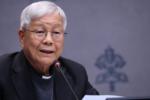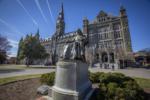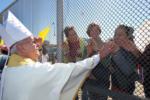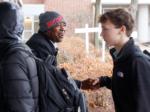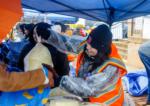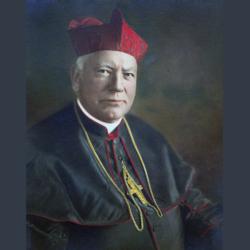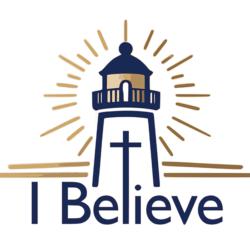US bishops' migration chair: Church's support of 'a community in fear' must 'go beyond words'
WASHINGTON (OSV News) -- The church's support for immigrant communities must "go beyond words" amid fears of potential mass deportation efforts, Bishop Mark J. Seitz of El Paso, Texas, who is chairman of the U.S. Conference of Catholic Bishops' Committee on Migration, said Nov. 20 in remarks to Catholic immigration advocacy groups.
"The church is unequivocally on the side of a community in fear right now, and stands with the migrant community," Bishop Seitz said in a webinar hosted by the Hope Border Institute, a group that works to apply Catholic social teaching to policy and practices affecting the U.S.-Mexico border region.
Bishop Seitz directed his comments "to migrants who are part of our communities, our churches, who work in America's essential jobs, who make their home in El Paso and in this country -- many for decades -- who contribute to this country and our faith communities in so many ways, to families who are at risk of being separated by deportation."
"Know that the Catholic Church in the United States stands with you and stands alongside you," he said. "Yes, we may be entering a difficult moment, but whatever country you come from, whatever your faith tradition, whatever your immigration status, in the United States and in the Catholic Church you have an ally, an advocate, a home. We are in this together."
President-elect Donald Trump campaigned on hardline immigration policies, calling for mass deportations. He has also deployed strong rhetoric about immigrants, such as stating those without legal status "destroyed the fabric of our country" in a September presidential debate.
In a Nov. 18 post on his social media website, Trump quoted a post claiming his administration would be "prepared to declare a national emergency and will use military assets" for a mass deportation program, adding, "TRUE!!!"
Although Trump has not offered specifics on how he would carry out such a program after he takes office in January, mass deportations run contrary to the Second Vatican Council's teaching in "Gaudium et Spes," which condemned "deportation" among other actions, such as abortion, as among those that "poison human society," a teaching St. John Paul II affirmed in two encyclicals on moral truth and life issues.
Although the nation finds itself at a "crossroads," Bishop Seitz said, "this is an issue that transcends any one administration. Both political parties are at fault, and have been for years. Both the White House and Congress have been at fault, but the position of the church is clear because it is rooted in the Gospel of Jesus Christ."
The United States, he said, "as a place of unique privilege and opportunity and a place which continues to benefit from migration," has "a unique role in managing migration in our hemisphere, and we must ensure that human rights and human dignity are respected and upheld at our borders. That is what border security means, and in a special way, we need to be vigilant in upholding the rights of asylum seekers and to ensure that the dignity and unity of the family is honored. Mass deportations are not the solution. Mass deportations can never be the solution. The church will continue to witness to human dignity at borders and everywhere."
Dylan Corbett, executive director of the Hope Border Institute, said, "there will definitely be actions to turn back the vulnerable at the border," creating a moment of "moral urgency" that should prompt people of faith to work together.
"And while we cannot predict in what form it might take, there will be a campaign of deportation, both here at the border and in the interior of our country, and it's going to test us. It's going to be a test of our moral metal," Corbett said. "And I think all of that underscores the real need for us to act and to organize in new and creative ways."
Bishop Seitz said he has been encouraging fellow bishops to make public statements in support of upholding the dignity of migrants and immigrant communities, among other "concrete expression."
In one statement of support, the bishops of the Iowa Catholic Conference -- Archbishop Thomas R. Zinkula of Dubuque and Bishops Dennis G. Walsh of Davenport, William M. Joensen of Des Moines, and R. Walker Nickless of Sioux City -- wrote to "our dear migrant brothers and sisters in Christ" that they have "hearts full of compassion and a deep desire to express our solidarity with you during this stressful time."
"We recognize the immense challenges you face as migrants, and we want to assure you that you are not alone," they said in the Nov. 19 joint statement. "As your bishops, we will advocate for your just treatment and dignity within the framework of the law. The Church will accompany and serve you at this time as much as we are able. We assure you of our prayerful support and ask the State of Iowa to do the same. You are our brothers and sisters. Please know that you are not forgotten and that your Church stands with you in solidarity."
In the webinar, Bishop Seitz said church leaders should take "a moment for us to rethink ministry to migrants," and that efforts toward support might vary in different parts of the country, but said that they broadly "need to bring our priests, our leaders in our advocacy work, our intercultural work, our Hispanic ministry and our legal services together at the diocesan level in new ways."
"In every diocese, we should come up with concrete plans to offer pastoral support in the coming weeks, months and years," Bishop Seitz said.
He emphasized that "our solidarity really must go beyond words in order to be credible."
"We need to be there for people right now," he said. "We need to help families prepare people need to know their rights. There's a role in that for the church."
- - - Kate Scanlon is a national reporter for OSV News covering Washington. Follow her on X (formerly known as Twitter) @kgscanlon.




